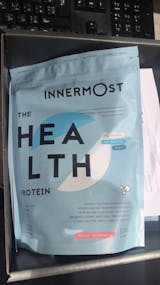More than one history-defining vote took place in America in November. As well as Joe Biden being elected the new president of the United States, the northwestern state of Oregon decided to legalise magic mushrooms.
Oregon now allows legal access to psilocybin, the mind-altering compound in ‘shrooms, for mental health treatment in supervised settings, as well as decriminalising personal possession of the substance. More than two million votes were cast on the issue, and the measure was passed with a 55.8% approval rating.
In the world of mental health treatment, this is big news. Everyone has a friend who went to Glastonbury, did mushrooms and returned home more in touch with the universe and at peace with themselves. Studies have found that psilocybin can help to treat trauma, depression and anxiety, and this move will make the drug far more accessible to those who need it to overcome mental ill health and past traumas.
Justin Townsend is the CEO of MycoMeditations, a legal magic mushrooms retreat in Jamaica. He’s a huge proponent of mushrooms as a force for good. As well as running the business, he guides clients though their mushroom trips and helps them to process their emotions and realisations afterwards. Speaking to Innermost, Justin said: ‘Mushrooms are an incredible tool. We’ve administered thousands of does of psilocybin medicine to many hundreds of guests over the years. They come here to work - and it really is work.
‘The people who come to us have often experienced years of depression and anxiety, or have repressed traumas. Mushrooms bring out whatever has the most emotional charge within you to the surface for processing. This can take the form of cognitive insights, emotional breakthrough and mystical experiences. Others will go through a very deep cathartic process
‘Afterwards, integration is very important. We talk as a group about the revelations and realisations you’ve had. It’s a profound experience, with lots of unpacking and processing.’
Oregon’s law change means you’ll only be able to take the drug in a controlled setting under the guidance of a therapist or other licensed facilitator, who will administer the correct dosage and set the mood and surroundings of your trip, as well as help and guide you during and after the experience.
Justin said: ‘I’m 100% behind the law change and the increased access it will give the public to this medicine. But I do worry that mushrooms will become overly regulated. The last thing you want to do while tripping is to face down someone in a white coat with a clipboard.
‘Magic mushrooms aren’t a magic wand that you can wave over someone to solve all their problems. They’re one part of a process of transformation, and the work continues after the trip. If you continue with the transformation process, you can come to a whole new version of yourself.’
A 2016 study backs up the many anecdotal tales of magic mushrooms being a tool for good. Researchers found that when participants took psilocybin over the course of six months, 60-80% of them experienced significant reductions in depression or anxiety. In a recent follow up study, a huge 70% of participants said that magic mushroom-assisted therapy brought long-term positive changes to their lives and rated it as one of the most meaningful and spiritually significant things they had ever experienced.
How psilocybin works is not yet fully understood, but researchers at New York University Grossman School of Medicine think that it makes the brain more flexible and accepting of fresh thought patterns and ideas.
Excitingly, these benefits can also be felt by people with no history of mental ill health, and can raise life satisfaction levels. Psychedelics can help combat the universal problems of lack of concentration and loneliness, bringing a sense of peace, mindfulness and stillness, as well as helping with processing life events and past hurts.
While the exact procedure for screening people and administering the drug to potential patients has yet to be established, this legal milestone is a huge step towards widening and improving treatment for mental health issues the world over. And we can all raise a mug of mushroom-laced tea to that.
If you're fascinated with everything to do with mushrooms, check out our The Health Protein and The Relax Capsules. They both contain Japanese medicinal mushrooms which have antioxidant properties and help to support brain health.























